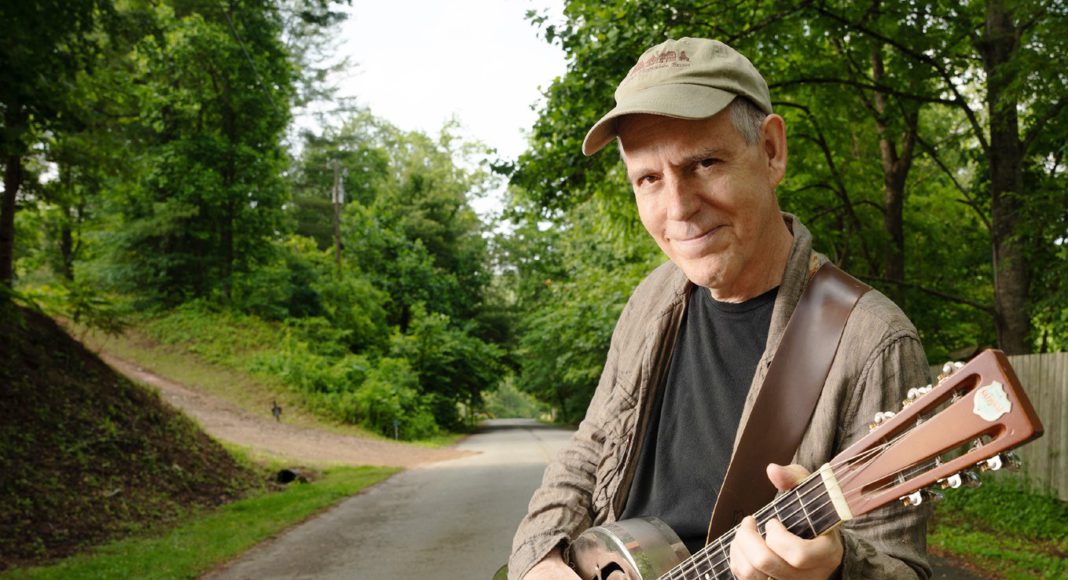While many artists express serious reservations about the Spotify music streaming platform – and with good reason – North Carolina-based singer-songwriter David Wilcox has taken a different approach: he’s embracing some of the platform’s opportunities for flexibility. His latest album – My Good Friends, something like his 20th studio release – came out last August in CD and download formats. But the streaming version bears the subtitle The Guided Tour, and features interstitial narration from Wilcox.
“I love that Spotify has this ability to share a whole other version of the record,” he explains. “It’s not just the songs one after another; there’s room for me to introduce each song.” The Guided Tour configuration of the album allows Wilcox to set the songs up, providing backstories. He says that the narrative framing provides a metaphorical three-dimensional setting for each of his up-close-and-personal tunes. “That way,” he says, the listener can “discover each song with a certain emotional momentum and focus.” The resulting experience creates an intimate atmosphere akin to a house concert.
Wilcox admits that the process of creating those narrative connective bits was itself a journey of discovery for him as an artist. “When I started to walk myself through the songs, it was like looking through a journal,” he explains. He found himself reflecting on questions: “What have the past couple of years been about for me? What have I learned? What have I struggled with? Where have I found my hope? Why did this song come? What is it trying to tell me?” Wilcox admits that in some cases, he found that his newest songs revealed depth he hadn’t appreciated until that moment.
Not surprisingly for an artist whose reputation is built upon the warm give-and-take that is found in intimate performances, Wilcox says that conceiving the spoken-word introductory pieces for My Good Friends (The Guided Tour) informed the manner in which he presents those songs in concert. Conjuring a reference from the not-wholly-unrelated discipline of stage acting, Wilcox says that he has always appreciated the idea of subtext, “that whole Stanislavski theater thing.”
▣
And he applies that “art of experiencing” method acting approach to public performance. “You know the line you’re going to say or sing,” he explains. “So you don’t need to think about that. Instead, you think about why you’re saying it.” Connecting with the meaning of a song as he sings takes him back to the thoughts and feelings at its core. “If a song moves me, it moves me because it’s coming from the place I want to go emotionally,” he says.
On occasion, if rarely, Wilcox writes a song that’s somehow too personal to share widely. “There are one or two of my songs that I don’t play,” he admits, “for the sake of the people who are in those songs.” But when it comes to opening up his own inner world, everything is fair game. “I’m happy to share anything about me,” he says. And that openness is a key to the emotional resonance of Wilcox’s music. “Early on, I came to this idea: If you’re willing to share almost everything, you’re vulnerable,” he says. “But if you share everything, then you’re safe.”
Like many touring musicians, Wilcox found himself with time on his hands during the pandemic. Some of that time was inevitably spent reflecting on the pros and cons of a life on the road. And Wilcox arrived at a decisive conclusion. “I love touring more than ever now,” he says. “And I think that’s because I’m doing it for different reasons.”
Some musicians are out there for the return on their investment, “for the get-back,” he says. “They’re investing their time and money, thinking that [touring] will pay off. They’re assuming that the struggle will eventually give them the success that will nurture their self-image and make them feel like this time of questioning, doubt and struggle was worth it.”
But Wilcox says that he never approached touring with that set of assumptions and goals. For him, such an approach would have represented “sort of taking out a loan on my self image against the future,” he says. “And pretty soon I’d be paying interest.” Instead, the David Wilcox brand of touring is built upon a fundamentally different idea. “I always wanted to make it so if I [knew I] was going to die next year, I would still choose to do this. It [would be] worth it just for now.”
In practice, that means that touring is characterized by an easygoing informality. “When I’m setting up a tour, instead of – for example – getting a string of hotels up the west coast, I just call friends and say, ‘Hey, I’m going to be in town on such-and-such,’” he says. “These people will come to the show, and then we’ll come back, sit and sip tea and talk about stuff, and then go for a walk in the morning.”
And that, says David Wilcox, “feels like community.” Because it is.
▣
David Wilcox with Jean Rohe
7pm Friday Feb. 2
Kuumbwa Jazz Center, 320-2 Cedar St., Santa Cruz ($35-$45)
Tickets: https://ci.ovationtix.com/36279/performance/11382164













